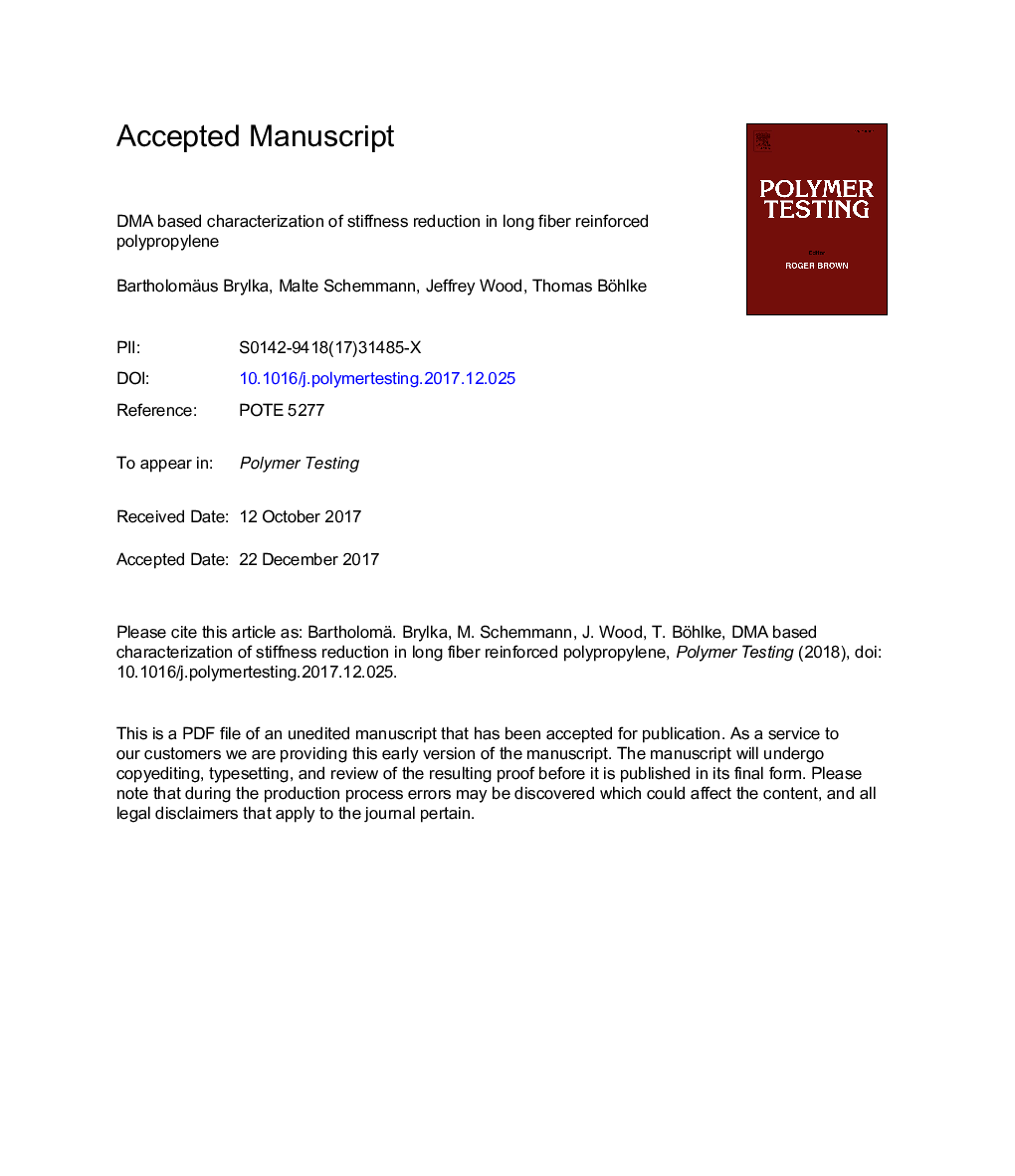| Article ID | Journal | Published Year | Pages | File Type |
|---|---|---|---|---|
| 7825356 | Polymer Testing | 2018 | 23 Pages |
Abstract
This paper describes an experimental technique based on dynamic mechanical analysis (DMA) that is shown to be useful in separating nonlinear viscoelastic effects from the characterization of irreversible stress-induced damage responsible for stiffness reduction in fiber-reinforced polymer composites. In this work, we characterize the damage evolution of polypropylene (PP) reinforced with long, discontinuous glass fibers (GF) produced by the Direct Long-Fiber Thermoplastic/Compression Molding (D-LFT/CM) process. The experimental technique is comprised of three phases: 1) dynamic stabilization at low load to measure the time-dependent storage and loss moduli, followed by 2) a frequency sweep to provide rate-dependent viscoelastic properties and 3) a quasi-static application of a peak load. These three phases are repeated with the peak load of Phase 3 increased in each iteration. Experimental results for D-LFT/CM PP/GF30 presented here show a direct correlation between peak load and the irreversible stiffness reduction. Furthermore, the stabilization phase following peak load application is shown to lead to a stiffness recovery of up to 40% due to nonlinear viscoelastic recovery.
Related Topics
Physical Sciences and Engineering
Chemistry
Organic Chemistry
Authors
Bartholomäus Brylka, Malte Schemmann, Jeffrey Wood, Thomas Böhlke,
